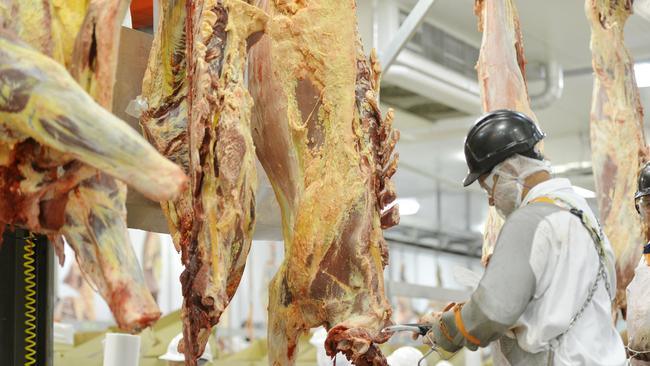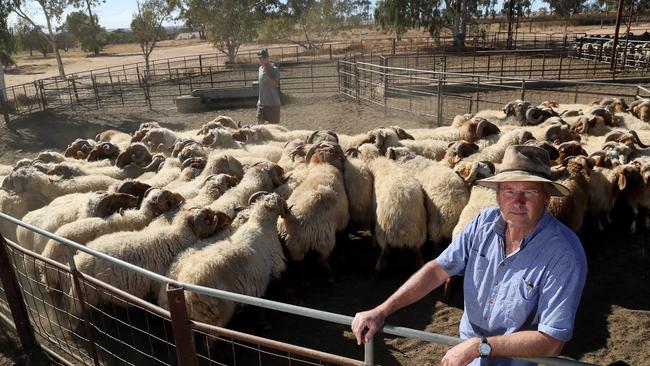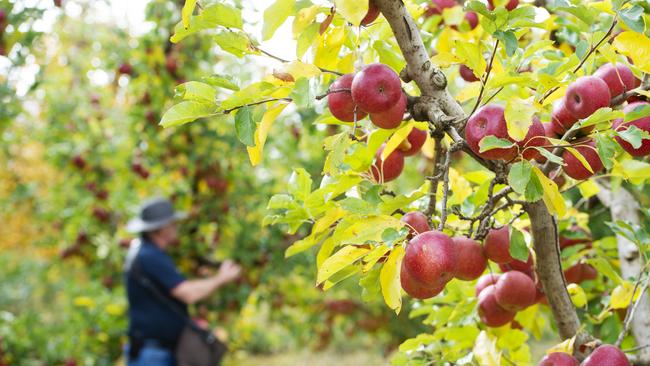Explainer: What Labor’s industrial relations laws could mean for agriculture
Sweeping reforms to workplace laws could mean big changes for agriculture. We break down what farmers need to know.
You’ll have heard a lot about the federal government’s planned workplace relations changes this past month – and now, it’s crunch time.
The government set itself an ambitious end-of-year deadline to pass its “Secure Jobs, Better Pay” bill, a mammoth 249-page piece of legislation that Workplace Relations Minister Tony Burke says will “get wages moving”.
With parliament in its final two sitting weeks for 2022, all eyes are on the Senate as Labor aims to get the bill through.
It won’t be easy, however. Labor doesn’t yet have the numbers and industry groups – including the National Farmers’ Federation – are ramping up their campaign against the changes.
So, if you’re a farmer, what does it actually mean for you?
This is how the bill could affect the agriculture sector.
WHAT’S THE CONCERN FOR AGRICULTURE?
The biggest worry among ag employers – as with most industry groups – are the changes to multi-employer bargaining, which allows employees from different businesses to collectively negotiate for better pay and conditions.
The government says broadening the scope for multi-employer bargaining will increase how many people are on enterprise bargaining agreements, the number of which has plummeted in the past decade.
The Australian Council of Trade Unions argues making bargaining more accessible and fit-for-purpose will reverse the trend in both EBA coverage and wages flatlining.
Industry groups including the NFF and Australian Meat Industry Council disagree, arguing smaller growers will be forced to negotiate alongside corporate players, productivity will be stifled, and widespread industrial action could take place.

SO, WHAT IS MULTI-EMPLOYER BARGAINING?
The bill lets employees from different workplaces negotiate together if they meet certain criteria, under several possible categories.
Under the single-interest stream, workers from different farms or ag-related businesses could negotiate together if they’re deemed to have a common interest, and it’s in the public interest for them to do so.
Meanwhile, the supported stream is directed at workers from low-paid and award-reliant industries, which could include parts of agriculture. These workers would also be given the right to strike.
The bill does include an exemption from the single-interest stream for small business – but its definition of small business is less than 15 employees, meaning the new laws would apply to any farm or business with more than 14 employees.
That figure excludes casual or temporary staff (such as harvest workers) but would include part-timers. There is no exemption for small businesses under the supported stream.
So theoretically, a farm with 20 staff could be in the same bargaining process as a business with more than 100 employees, if the majority of workers at each business agree, and they meet the public-interest test.
Industry says stronger definitions are needed about both the common and public-interest tests, otherwise it will be left to the Fair Work Commission to decide.
The NFF argues multi-employer bargaining would see competing businesses forced to bargain together.
“We’re concerned about … the potential for small business to be steamrolled into these arrangements, which are unsuitable to them and gives their big competitors a commercial advantage,” NFF workforce committee chair Tony York told a Senate hearing into the bill.

The Australian Meat Industry Council, in its submission on the bill, argued employers “should not be forced to adopt ‘one size fits all’ terms and conditions”, and that multi-employer bargaining could stop businesses from expanding and creating more jobs.
It’s important to note that the number of ag employees on EBAs is tiny.
There are just 143 EBAs in use in agriculture, forestry and fishing, covering 12,800 employees, according to government data. That’s out of about 325,000 ag workers nationally (according to ABS figures).
The aim of the government’s bill, however, is to encourage greater uptake of bargaining agreements in the future.
WHAT’S THE LIKELIHOOD OF ‘WIDESPREAD STRIKES’?
The NFF’s other major concern is how the changes will impact other parts of the agricultural supply chain.
Business groups say multi-employer bargaining could lead to massive industrial action, particularly if one union winds up negotiating with numerous companies in the same industry at the same time.
If that occurs in, say, the processing or transport sectors, the NFF says it could have direct consequences for farmers, including supply shortages and animal welfare issues.
Chair of the Senate committee examining the bill, Labor’s Tony Sheldon, labelled this argument “hysteria” from “an industry that has very little enterprise bargaining”.
“Every piece of evidence internationally on multi-employer bargaining demonstrates that industry gets together with their workforce, they have proper systems to turn around and negotiate,” Senator Sheldon argued.
WHAT ARE THE OTHER STICKING POINTS?
The bill aims to cut back on the use of fixed-term contracts, in a bid to improve job security.
Farmers say this could affect use of seasonal harvest workers, such as those under the Pacific Australia Labour Mobility Scheme, who often return to the same employers on short contracts, and frequently go beyond the proposed two-year contract limit.
The NFF has also argued consideration needs to be given for agriculture’s “legitimate use” of casual workers, with farms “hostage” to the weather, yield volumes and harvest times.

But the other major complaint is the speed with which the legislation has been brought forward.
The NFF joins lobbies such as the Business Council of Australia and the AI Group in calling for more time to consider the hefty bill in more detail.
WHAT’S THE STATE OF PLAY?
The bill has passed the House of Representatives, but not without numerous amendments.
Attempts to lift the 15-employee threshold for small business to at least 100 were defeated, but could be pursued again when the bill goes to the Senate.
Labor needs the votes of the Greens and key crossbenchers such as ACT senator David Pocock or Tasmanian senator Jacqui Lambie, who have indicated they do not want to be rushed into passing the bill this year.
Both back splitting the bill into two parts, so the less contentious parts of the bill – largely social reforms to increase workplace equity and reduce the gender pay gap – can go through, and the EBA changes given more time.
Prime Minister Anthony Albanese has already indicated parliament could go into extra time in order to see the bill passed this year.
The Opposition maintains the laws should be halted.



